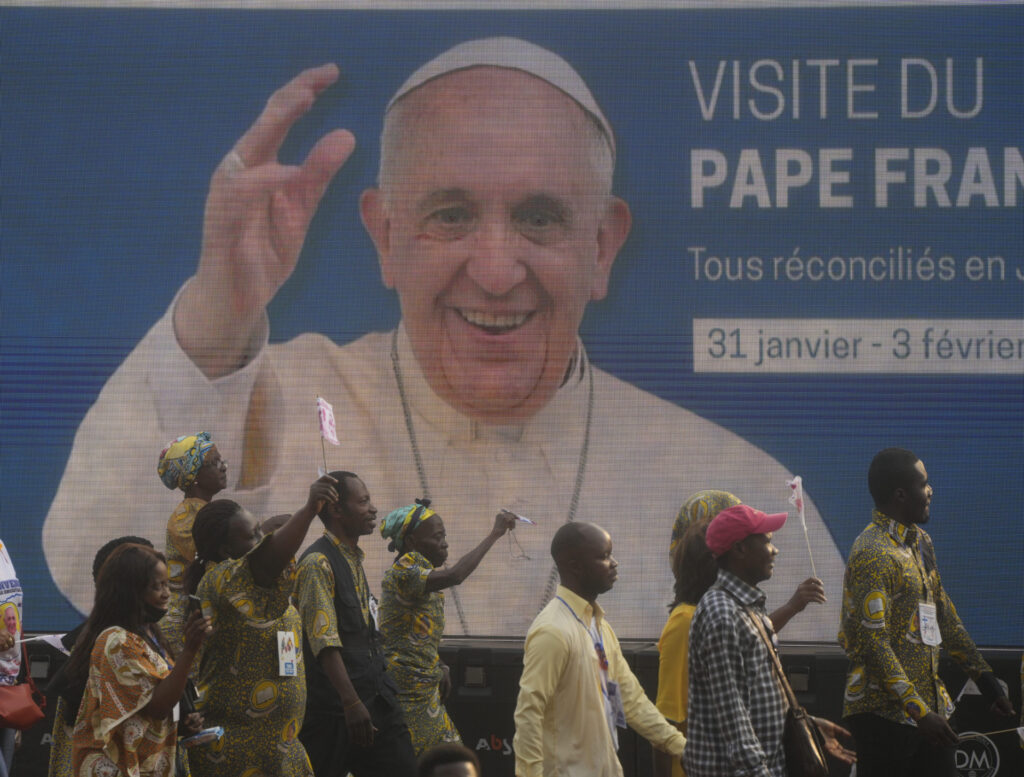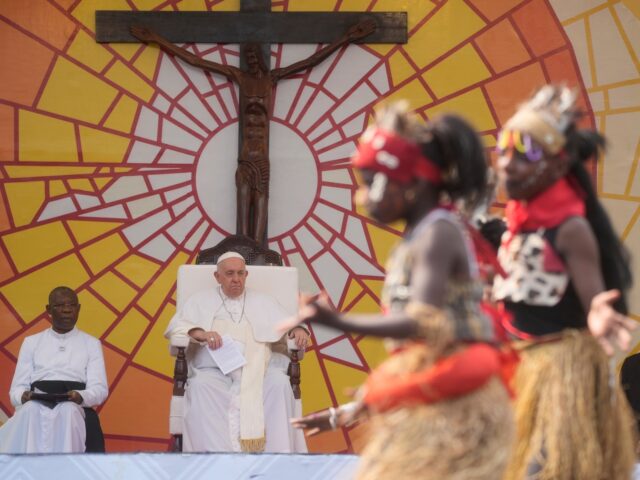ROME — Pope Francis has denounced the “murderous, illegal exploitation” of the wealth of the Democratic Republic of Congo (DRC) where China has appropriated an ever-greater share of the nation’s resources.
I condemn “the murderous, illegal exploitation of the wealth of this country, and the attempts to fragment the country in order to control it,” the pontiff said Wednesday in a meeting in Kinshasa with victims from the eastern part of the country.
On this, the first day of his visit to the DRC, the pope went on to denounce “a war unleashed by an insatiable greed for raw materials and money that fuels a weaponized economy and requires instability and corruption.”
“I make a heartfelt appeal to all the people, to all the internal and external organizations that orchestrate war in the Democratic Republic of the Congo in order to plunder, scourge and destabilize the country,” he said.
“You are enriching yourselves through the illegal exploitation of this country’s goods and through the brutal sacrifice of innocent victims,” he added.
Francis went on to urge nations to “put away your weapons, put an end to war.”
“Enough!” he said. “Stop getting rich at the cost of the poor, stop getting rich from resources and money stained with blood!”
Although the pope would never say so, the most natural target of his diatribe is China, which has been assuming a greater and greater share of the nation’s mineral mining while also providing military “assistance.”

Faithful arrive at the Martyrs’ Stadium in Kinshasa, Democratic Republic of Congo for a meeting between Francis and young people, Thursday, Feb. 2, 2023. (AP Photo/Gregorio Borgia)
As a report last October in the Diplomat noted, “Western companies have grown increasingly wary of sourcing minerals from the DRC due to human rights abuses in the extractive sector. That reluctance is not shared by the Chinese government and its companies.”
“This has allowed China to increase its extraction of resources – mainly cobalt and copper – from the DRC in recent years,” the report added.
In 2007, a consortium of Chinese enterprises signed a “resource for infrastructure” accord with the Congolese government in which it was agreed that China would export and sell Congolese cobalt and copper and, in return, China would build a number of infrastructure projects in the Congo.
Cobalt in particular is essential for producing rechargeable batteries, but it is also a key component in military equipment including ammunition, magnets, stealth technology, and jet engines.
The report noted that currently “70 percent of world’s cobalt is mined in the DRC, and 80 percent of that DRC output then heads to China for processing.”
“Of the 19 cobalt operations in the DRC, 15 are now owned or co-owned by Chinese entities,” the report said, and the five largest Chinese mining corporations active in the nation “have access to credit lines from Chinese state banks totaling an astounding $124 billion.”
“Military assistance is one of the tools China uses to secure the unconstrained flow of the minerals for processing,” the report continued, and offering military assistance “allows Beijing to help protest its own investments and Chinese nationals in the DRC, but it also helps China build relationships with military officials, locking in longer-term gains.”
China’s majority control over DRC mineral mining has proved dangerous not only for the Congolese people, but also for Western nations that may find themselves uncomfortably dependent on China for producing green energy.
China’s sway over the DRC is “causing deep concern as U.S. policymakers slowly catch up to Beijing in realizing the value of having access to key resources,” the report declared, especially since the U.S. has sold off a significant portion of its stockpile of key resources, including cobalt.”
“Experts argue that this situation creates a risk to the national security of the U.S. and other nations as China may exploit this vulnerability in a similar manner to how Russia uses oil,” it stated.

COMMENTS
Please let us know if you're having issues with commenting.